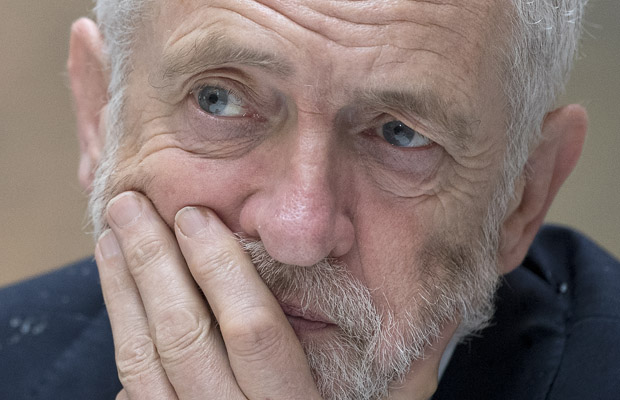by Patrick Worrall and Georgina Lee
“NHS staff [nurses] are 14 per cent worse off today than they were seven years ago” – Jeremy Corbyn
In a Twitter video today, Mr Corbyn made a slightly different claim: that it’s nurses specifically who are 14 per cent worse off than they were in 2010.
We assume that this is what Mr Corbyn meant to say in the Commons today.
This figure is from the Royal College of Nursing (the RCN). We checked the figures ourselves.
In 2010-11 the minimum starting salary for a registered nurse (“Band 5”) was £21,176
The equivalent salary in 2016-17 is £21,909.
Using the Bank of England’s online inflation calculator, we can see that if nurses’ salaries had risen along with inflation, they would have reached £24,914 by 2016-17.
That means that registered nurses on a minimum starting salary are over £3,000 worse off today than they were in 2010-11. That works out at about 13.7 per cent.
It’s a similar picture in Bands 6 and 7, where nurses are 14.0 and 14.2 per cent worse off today than in 2010-11, respectively.
The verdict
Jeremy Corbyn is right about nurses: they are around 14 per cent worse off today in real terms than they were seven years ago.
That’s works out at about £3,000 a year for a registered nurse on a basic starting salary.
“It’s important to have net migration at sustainable levels – we believe that to be the tens of thousands – because of the impact particularly it has on people at the lower end of the income scale in depressing their wages” – Theresa May
Most research finds that the effect of immigration on average wages is very small – close to zero.
But a couple of studies have found that lower-paid, lower-skilled workers are more likely to feel the effects of immigration than people who are better off.
This paper by academics at the Centre for Research and Analysis of Migration at University College London found that an inflow of migrant workers equivalent to 1 per cent of the native population would depress wages for the very lowest paid by 0.6 per cent.
By contrast, people on a median average wage – and those at the top of the wage scale – would see their wages go up slightly.
This Bank of England paper divided people up by occupation rather than earnings, but found a similar effect.
A rise in the proportion of immigrants working in the “semi/unskilled services” sector – carers, cleaners, shop assistants, restaurant workers – that is, in care homes, bars, shops, restaurants, cleaning, also led to a reduction in pay for people in that sector.
But the effect was relatively small: a 1 percentage point increase in immigrants depressed wages by just under 0.2 per cent.
And this study measures the effect on all workers, not just “natives”, so it’s possible – as has been found elsewhere – that many of the lower-paid people affect are immigrants themselves.
The verdict
There is academic evidence to back up Mrs May’s point that high immigration can depress wages for the low-paid, but it’s debatable how big the effect is.

“There’s already a shortage of 40,000 nurses across the UK” – Jeremy Corbyn
In May the Royal College of Nursing estimated that there are 40,000 unfilled nursing posts in the NHS in England (not “across the UK”).
We could have an argument about whether “shortage” is the best word the Labour leader could have used to describe the situation. After all, there will always be some unfilled job vacancies in a system as big as the NHS.
But in fairness, the college put the story out to highlight what it called a recruitment crisis in the profession, saying vacancies had doubled since 2013.
The government has said – truthfully – that the overall number of nurses has gone up under the Conservatives.
But we think the overall rise is only about 2 per cent, and the Prime Minister has slipped up on the detail of this in the past. See here for the full FactCheck.
The verdict
It’s true that there were 40,000 unfilled nursing posts in England this year, according to the Royal College of Nursing.
It’s debatable whether “shortage” is the right word to use here. The number of nurses working in the NHS as a whole has gone up slightly since the Tories came to power in 2010.



